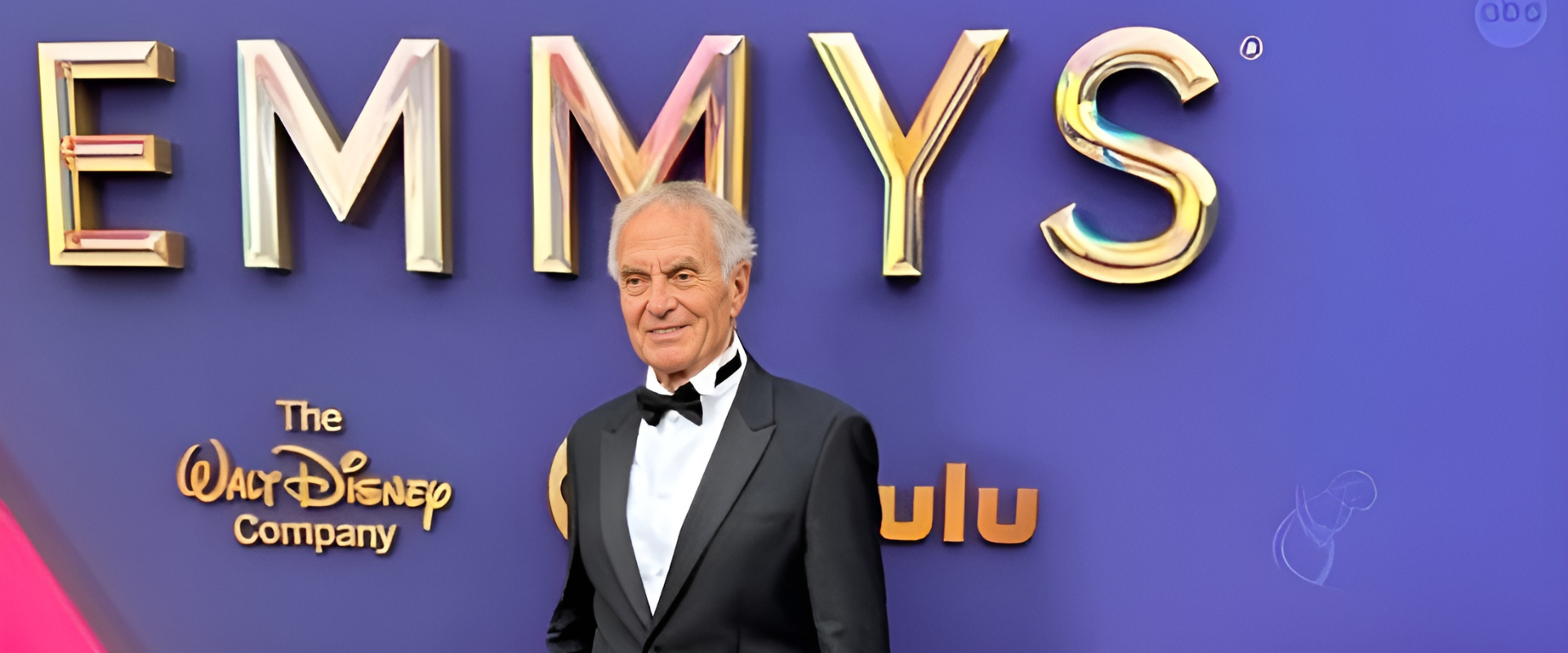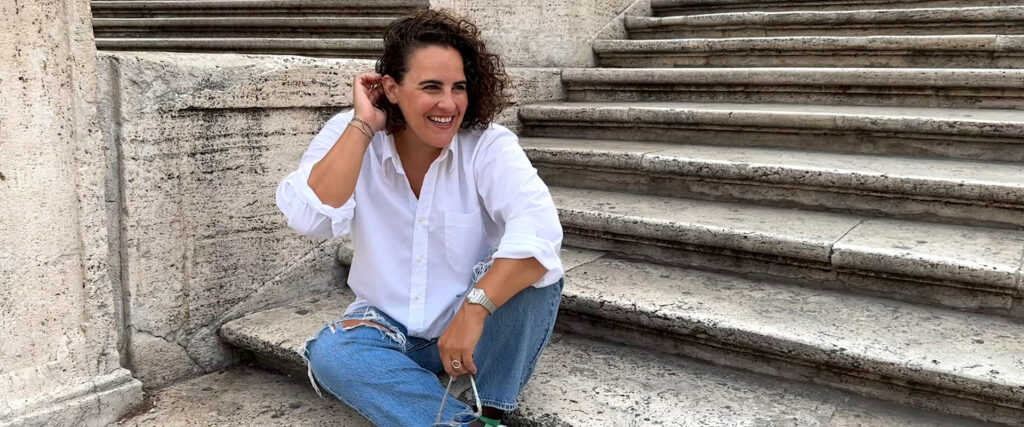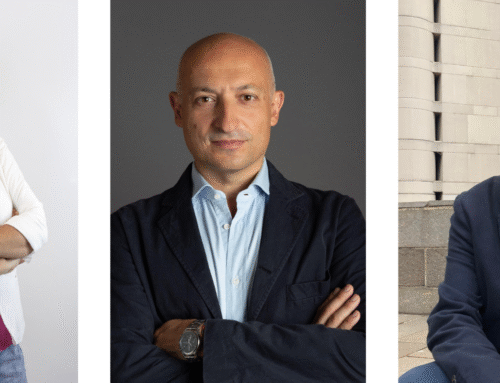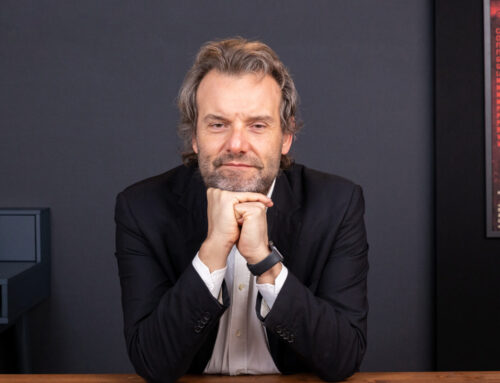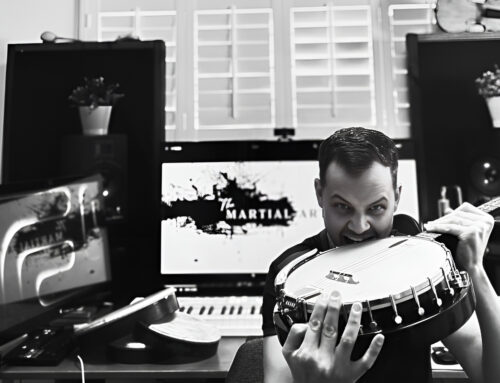Enzo Sisti: A Master of Hollywood-Italian Collaborations
From Accounting to Producing: How He Became One of Hollywood’s Most Trusted Professionals in Italy
Born in Rome in 1945, he is the man that major American producers rely on when they choose to film in Italy. From The Passion of the Christ to No time to Die, from Ben Hur to Equalizer 3, this man with boundless enthusiasm has organized the filming of dozens of movies and TV series set in the alleys and squares of Rome, Florence, or Venice, along the Amalfi Coast, among the Tuscan hills, the peaks of the Dolomites, or in the Cinecittà studios.
In Los Angeles for his first Emmy nomination as producer of the Showtime and Netflix series Ripley, he confesses that his career started by chance, or by a great destiny made of small coincidences. Born a stone’s throw from the Colosseum just after World War II, into a simple family where his mother stayed home and his father ran a shoe shop, he admits, “I had nothing to do with cinema. I only knew about it because my grandfather used to take me to see Westerns. I was attending accounting school (in Italy, that’s the equivalent of a high school for becoming an accountant), but I also needed to work because we needed money at home. I found a job at the Tor di Valle racetrack, which had just opened for the 1960 Olympics. I was 15! I would go to school until 1:15 PM and then race to the subway to get there. After graduation, I couldn’t find anything else, so I kept working there. One day, a friend called and asked if I could help him out. He was working as a delivery boy; his colleague needed surgery for an ulcer, and they needed someone to replace him while he was in the hospital and recovering. I accepted right away. Only later did I discover that the company was Jolly Film, a production company that had made big movies, including A Fistful of Dollars by Sergio Leone, just to name one. I did well because they called me back to be a messenger again. Then they discovered that I could type well and fast. Then they found out I was an accountant, so they hired me. I still have my hiring letter, dated August 1, 1968. That’s where it all started. By the end of ’69, I was already the company’s administrative director. The first movie I worked on as an accountant was Sacco e Vanzetti (1971, directed by Giuliano Montaldo, starring Gian Maria Volonté). After a few years, I left Jolly and started making films on my own. I remember among my early experiences Beyond Good and Evil by Liliana Cavani, To Forget Venice by Franco Brusati. I haven’t stopped since.”
In what year did you start collaborating with American productions?
In ’79, I worked on my first American movie: The Word for CBS. I didn’t speak a word of English, but I studied a lot because a new law had come out, and they trusted me with accounts and VAT reimbursements. Over the years, I met many Hollywood producers. I began to build credibility, and they started calling me to join the team. So much so that at a certain point, I became a financial controller and then a producer myself. My last movie as a financial controller was Gangs of New York (by Martin Scorsese, 2002). After that, I said, ‘Enough, I don’t want to deal with accounts anymore; I want to organize the whole thing.’”
How did you make the leap from handling accounts to becoming a producer?
I worked on Equilibrium, a 2002 American science fiction film written and directed by Kurt Wimmer, starring Christian Bale, which became a cult classic. Then I produced The Core, a 2003 American science fiction disaster film directed by Jon Amiel. But the real turning point for me was when Mel Gibson came along and secretly wanted to start preparing a film about the death of Jesus Christ. I threw myself headlong into that project. I even found Matera as the main location. At that time, nobody knew the city, which only boomed as a tourist destination after that film. I’d say the turning point for me was The Passion of the Christ by Mel Gibson in 2004.”
With so many years of experience, what do you think are the main differences between Americans and Italians in the entertainment industry?
From the Americans, you learn the value of great organization. They excel in clearly defining roles, with each person knowing their tasks and striving to complete them to the best of their abilities. Today, this meticulous organization of sets and productions is essential. When I started, I handled a bit of everything—accounting, production, transportation—and I often stayed late with the production manager to prepare the call sheet. The Americans introduced us to the organization of a large industry. Maybe the costs are higher because you need more people, but the work runs more smoothly. The financial side benefits greatly: you always have very detailed and meticulous spending forecasts. You start shooting with all the expenses mapped out until the very last day.
And what can the Italians teach?
In general, we have incredible talent, deep craftsmanship, and a level of know-how that I haven’t found anywhere else. I work with people who only have elementary school education, but they solve problems on set with skill and instinct that are invaluable. We have exceptional talent, almost all with incredible humility. That’s why the crews I assemble for major Hollywood projects are almost 100% Made in Italy, like Ripley, for example.
Hollywood is experiencing a deep crisis. After last year’s strikes, productions have not had the hoped-for rebound. Do you feel the effects of this recession?
I have spoken with many colleagues and people in the industry these days. They confirm this feeling. They tell me that filming in Los Angeles has become too expensive. Productions are looking to work in Atlanta, Georgia…in Las Vegas, Nevada, they are building large studios to create a new film hub just 45 minutes by plane from here. The problem is that, in addition to the high living costs in an expensive city like LA, there is also a lack of an advantageous tax credit. They are trying to push for a new law, but they are facing difficulties.
Is this helping those trying to attract projects to Italy?
Certainly, filming in Europe and Italy is highly appealing for them. In our country, we have an effective tax credit that guarantees 40% on all expenses and 30% on actor salaries for international productions. It’s a significant incentive, and I’m confident that 2025 will be a year full of work in Italy.
Is the crisis felt in Italy as well?
As far as Hollywood productions in our country are concerned, not much. I haven’t stopped since 2009, when Anton Corbijn came to shoot The American with George Clooney. If you behave properly, are honest, keep your word, and communicate clearly, they will return. Thank God it has gone that way. There was a moment of crisis in 2013, but in 2014, Timur Bekmambetov called me to organize Ben-Hur in Morocco. I was determined; I scouted dozens of racetracks and potential locations, and in the end, I convinced MGM to choose Italy, not Morocco. Even during COVID, we worked well. 2024 is proving to be a bit slower, perhaps because the decrees on the modified tax credit were delayed in coming out. Our tax credit is the key for international productions to keep coming to shoot in Italy. Then, of course, there’s the sun, the breathtaking landscapes, and our creative talent.
Share:
From Accounting to Producing: How He Became One of Hollywood’s Most Trusted Professionals in Italy
Born in Rome in 1945, he is the man that major American producers rely on when they choose to film in Italy. From The Passion of the Christ to No time to Die, from Ben Hur to Equalizer 3, this man with boundless enthusiasm has organized the filming of dozens of movies and TV series set in the alleys and squares of Rome, Florence, or Venice, along the Amalfi Coast, among the Tuscan hills, the peaks of the Dolomites, or in the Cinecittà studios.
In Los Angeles for his first Emmy nomination as producer of the Showtime and Netflix series Ripley, he confesses that his career started by chance, or by a great destiny made of small coincidences. Born a stone’s throw from the Colosseum just after World War II, into a simple family where his mother stayed home and his father ran a shoe shop, he admits, “I had nothing to do with cinema. I only knew about it because my grandfather used to take me to see Westerns. I was attending accounting school (in Italy, that’s the equivalent of a high school for becoming an accountant), but I also needed to work because we needed money at home. I found a job at the Tor di Valle racetrack, which had just opened for the 1960 Olympics. I was 15! I would go to school until 1:15 PM and then race to the subway to get there. After graduation, I couldn’t find anything else, so I kept working there. One day, a friend called and asked if I could help him out. He was working as a delivery boy; his colleague needed surgery for an ulcer, and they needed someone to replace him while he was in the hospital and recovering. I accepted right away. Only later did I discover that the company was Jolly Film, a production company that had made big movies, including A Fistful of Dollars by Sergio Leone, just to name one. I did well because they called me back to be a messenger again. Then they discovered that I could type well and fast. Then they found out I was an accountant, so they hired me. I still have my hiring letter, dated August 1, 1968. That’s where it all started. By the end of ’69, I was already the company’s administrative director. The first movie I worked on as an accountant was Sacco e Vanzetti (1971, directed by Giuliano Montaldo, starring Gian Maria Volonté). After a few years, I left Jolly and started making films on my own. I remember among my early experiences Beyond Good and Evil by Liliana Cavani, To Forget Venice by Franco Brusati. I haven’t stopped since.”
In what year did you start collaborating with American productions?
In ’79, I worked on my first American movie: The Word for CBS. I didn’t speak a word of English, but I studied a lot because a new law had come out, and they trusted me with accounts and VAT reimbursements. Over the years, I met many Hollywood producers. I began to build credibility, and they started calling me to join the team. So much so that at a certain point, I became a financial controller and then a producer myself. My last movie as a financial controller was Gangs of New York (by Martin Scorsese, 2002). After that, I said, ‘Enough, I don’t want to deal with accounts anymore; I want to organize the whole thing.’”
How did you make the leap from handling accounts to becoming a producer?
I worked on Equilibrium, a 2002 American science fiction film written and directed by Kurt Wimmer, starring Christian Bale, which became a cult classic. Then I produced The Core, a 2003 American science fiction disaster film directed by Jon Amiel. But the real turning point for me was when Mel Gibson came along and secretly wanted to start preparing a film about the death of Jesus Christ. I threw myself headlong into that project. I even found Matera as the main location. At that time, nobody knew the city, which only boomed as a tourist destination after that film. I’d say the turning point for me was The Passion of the Christ by Mel Gibson in 2004.”
With so many years of experience, what do you think are the main differences between Americans and Italians in the entertainment industry?
From the Americans, you learn the value of great organization. They excel in clearly defining roles, with each person knowing their tasks and striving to complete them to the best of their abilities. Today, this meticulous organization of sets and productions is essential. When I started, I handled a bit of everything—accounting, production, transportation—and I often stayed late with the production manager to prepare the call sheet. The Americans introduced us to the organization of a large industry. Maybe the costs are higher because you need more people, but the work runs more smoothly. The financial side benefits greatly: you always have very detailed and meticulous spending forecasts. You start shooting with all the expenses mapped out until the very last day.
And what can the Italians teach?
In general, we have incredible talent, deep craftsmanship, and a level of know-how that I haven’t found anywhere else. I work with people who only have elementary school education, but they solve problems on set with skill and instinct that are invaluable. We have exceptional talent, almost all with incredible humility. That’s why the crews I assemble for major Hollywood projects are almost 100% Made in Italy, like Ripley, for example.
Hollywood is experiencing a deep crisis. After last year’s strikes, productions have not had the hoped-for rebound. Do you feel the effects of this recession?
I have spoken with many colleagues and people in the industry these days. They confirm this feeling. They tell me that filming in Los Angeles has become too expensive. Productions are looking to work in Atlanta, Georgia…in Las Vegas, Nevada, they are building large studios to create a new film hub just 45 minutes by plane from here. The problem is that, in addition to the high living costs in an expensive city like LA, there is also a lack of an advantageous tax credit. They are trying to push for a new law, but they are facing difficulties.
Is this helping those trying to attract projects to Italy?
Certainly, filming in Europe and Italy is highly appealing for them. In our country, we have an effective tax credit that guarantees 40% on all expenses and 30% on actor salaries for international productions. It’s a significant incentive, and I’m confident that 2025 will be a year full of work in Italy.
Is the crisis felt in Italy as well?
As far as Hollywood productions in our country are concerned, not much. I haven’t stopped since 2009, when Anton Corbijn came to shoot The American with George Clooney. If you behave properly, are honest, keep your word, and communicate clearly, they will return. Thank God it has gone that way. There was a moment of crisis in 2013, but in 2014, Timur Bekmambetov called me to organize Ben-Hur in Morocco. I was determined; I scouted dozens of racetracks and potential locations, and in the end, I convinced MGM to choose Italy, not Morocco. Even during COVID, we worked well. 2024 is proving to be a bit slower, perhaps because the decrees on the modified tax credit were delayed in coming out. Our tax credit is the key for international productions to keep coming to shoot in Italy. Then, of course, there’s the sun, the breathtaking landscapes, and our creative talent.

